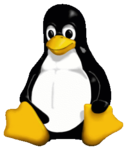Linux and Linux Foundation

-
Heterogeneous Memory Management v20 Published
It's looking less and less likely like Heterogeneous Memory Management (HMM) will be mainlined for the Linux 4.12 kernel. This is the long-in-development effort by Jerome Glisse that would benefit CUDA, OpenCL, and more by allow device memory to be transparently used by any device process and for mirroring process address space on a device.
-
Linux Kernels 4.10.12, 4.9.24 LTS and 4.4.63 LTS Bring x86 and OrangeFS Changes
Only three days after releasing the Linux 4.10.11, 4.9.23 LTS and 4.4.62 LTS kernels, Greg Kroah-Hartman announced today, April 21, 2017, the release of a new set of maintenance updates for the Linux 4.10, 4.9, and 4.4 kernel series.
Considering the fact that nearly three days had passed since the release of the Linux 4.10.11, 4.9.23 LTS and 4.4.62 LTS kernels, the Linux 4.10.12 and 4.9.24 LTS kernels change a total of 78 files, with 993 insertions and 459 deletions for Linux 4.10.12 and 938 insertions and 441 deletions for Linux 4.9.24, while Linux kernel 4.4.63 LTS is again a smaller patch changing a total of 48 files, with 518 insertions and 216 deletions.
-
Node.js exec director: Our project is transformational
The Node.js Foundation was formed in 2015 to serve as a steward over the Node.js sever-side JavaScript platform, providing a new governance model and taking over leadership from Joyent. Now, the foundation has hired its first executive director, Mark Hinkle, who had been vice president of marketing at the Linux Foundation. Hinkle will work to expand the foundation and articulate priorities.
-

- Login or register to post comments
 Printer-friendly version
Printer-friendly version- 1647 reads
 PDF version
PDF version
More in Tux Machines
- Highlights
- Front Page
- Latest Headlines
- Archive
- Recent comments
- All-Time Popular Stories
- Hot Topics
- New Members
digiKam 7.7.0 is released
After three months of active maintenance and another bug triage, the digiKam team is proud to present version 7.7.0 of its open source digital photo manager. See below the list of most important features coming with this release.
|
Dilution and Misuse of the "Linux" Brand
|
Samsung, Red Hat to Work on Linux Drivers for Future Tech
The metaverse is expected to uproot system design as we know it, and Samsung is one of many hardware vendors re-imagining data center infrastructure in preparation for a parallel 3D world.
Samsung is working on new memory technologies that provide faster bandwidth inside hardware for data to travel between CPUs, storage and other computing resources. The company also announced it was partnering with Red Hat to ensure these technologies have Linux compatibility.
|
today's howtos
|









.svg_.png)
 Content (where original) is available under CC-BY-SA, copyrighted by original author/s.
Content (where original) is available under CC-BY-SA, copyrighted by original author/s.

Recent comments
1 year 11 weeks ago
1 year 11 weeks ago
1 year 11 weeks ago
1 year 11 weeks ago
1 year 11 weeks ago
1 year 11 weeks ago
1 year 11 weeks ago
1 year 11 weeks ago
1 year 11 weeks ago
1 year 11 weeks ago